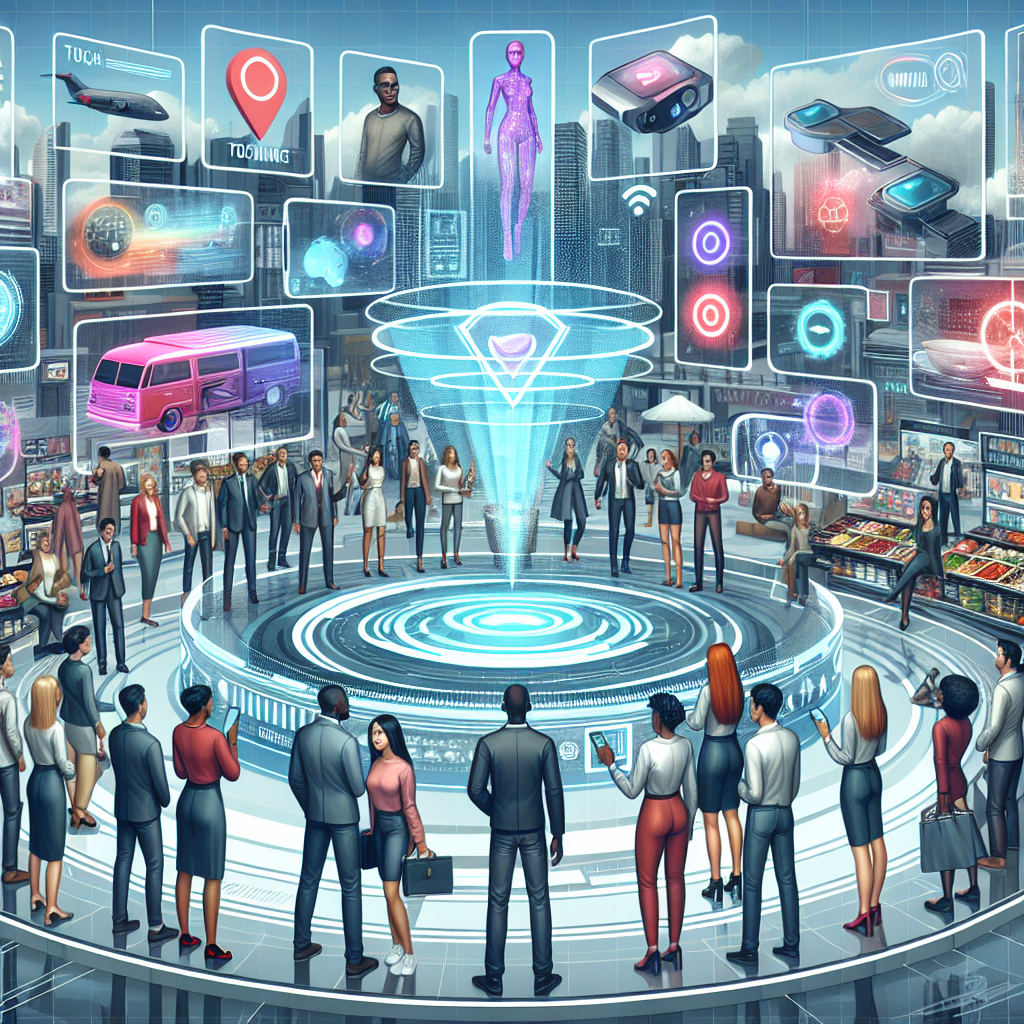Augmented reality (AR) is revolutionizing the way companies engage with their customers in marketing. This cutting-edge technology combines the physical world with digital enhancements, creating an immersive and interactive experience that captivates and engages consumers like never before. From virtual try-ons to interactive product demos, AR is reshaping the marketing landscape and pushing the boundaries of customer engagement.
In this article, we’ll explore how augmented reality is transforming the way companies connect with their customers, the benefits of incorporating AR into marketing strategies, and the future possibilities of this exciting technology.
The Power of Augmented Reality in Marketing
Augmented reality brings products and services to life in ways that were previously unimaginable. By overlaying digital content onto the real world through the use of smartphones, tablets, or AR glasses, companies can create engaging and interactive experiences that drive consumer interest and loyalty.
One of the most popular applications of AR in marketing is virtual try-ons. Retailers can now offer customers the ability to “try on” clothes, accessories, makeup, and even furniture in real time using AR technology. This not only enhances the shopping experience for consumers but also helps them make more informed purchasing decisions.
Interactive product demos are another effective use of AR in marketing. Companies can showcase their products in a more engaging and memorable way by allowing customers to interact with virtual models or animations. This helps to drive brand awareness and create a lasting impression on potential buyers.
In addition to enhancing the consumer experience, AR can also provide valuable data and insights for marketers. By tracking user interactions with AR content, companies can gain valuable insights into customer preferences, behaviors, and engagement levels. This data can then be used to optimize marketing campaigns, improve product offerings, and drive sales.
The Benefits of Augmented Reality in Marketing
There are numerous benefits to incorporating augmented reality into marketing strategies. Some of the key advantages include:
1. Increased engagement: AR technology creates immersive and interactive experiences that captivate consumers and keep them engaged with your brand.
2. Enhanced brand awareness: By offering unique and memorable experiences through AR, companies can stand out in a crowded marketplace and increase brand recognition.
3. Improved customer satisfaction: AR technology allows customers to make more informed purchasing decisions by trying products before buying, leading to higher levels of satisfaction and loyalty.
4. Data-driven insights: By tracking user interactions with AR content, companies can gain valuable insights into customer preferences and behaviors, helping to refine marketing strategies and improve ROI.
5. Competitive advantage: Companies that leverage AR technology in their marketing efforts can gain a competitive edge and differentiate themselves from competitors.
The Future of Augmented Reality in Marketing
As technology continues to advance, the possibilities for augmented reality in marketing are endless. From virtual shopping experiences to personalized advertising campaigns, AR is poised to revolutionize the way companies connect with their customers and drive business growth.
Some of the future possibilities of augmented reality in marketing include:
1. Personalized experiences: Companies can use AR technology to create personalized shopping experiences based on customer preferences, browsing history, and behavior data.
2. Social media integration: AR filters and effects are becoming increasingly popular on social media platforms, allowing companies to reach a wider audience and engage with customers in new and innovative ways.
3. Location-based marketing: AR can be used to deliver targeted and location-specific marketing messages to customers based on their physical location, creating more relevant and impactful interactions.
4. Virtual events and experiences: With the rise of remote work and digital events, AR technology can be used to create virtual conferences, workshops, and experiences that engage customers from anywhere in the world.
5. Seamless omnichannel integration: Companies can use AR technology to create seamless omnichannel marketing experiences that connect online and offline interactions, providing a cohesive and personalized customer journey.
FAQs
What devices are compatible with augmented reality?
Augmented reality can be experienced on a wide range of devices, including smartphones, tablets, AR glasses, and VR headsets. Many newer smartphones and tablets come equipped with AR capabilities, while standalone AR glasses and VR headsets offer a more immersive AR experience.
How do companies measure the success of augmented reality marketing campaigns?
Companies can measure the success of augmented reality marketing campaigns through a variety of metrics, including user engagement, click-through rates, conversion rates, and sales. By tracking user interactions with AR content and analyzing key performance indicators, companies can assess the effectiveness of their campaigns and make data-driven decisions to optimize future efforts.
Is augmented reality suitable for all industries?
Augmented reality can be beneficial for a wide range of industries, including retail, e-commerce, travel, entertainment, healthcare, education, and more. Any industry that can benefit from immersive and interactive experiences for customers can leverage AR technology to enhance their marketing efforts and drive business growth.
How can companies get started with augmented reality in marketing?
Companies looking to incorporate augmented reality into their marketing strategies can start by conducting research on AR technology and its applications in their industry. They can then work with AR developers or agencies to create customized AR experiences that align with their brand and business goals. It’s important to test and iterate on AR campaigns to optimize performance and ensure a seamless user experience.
In conclusion, augmented reality is transforming the way companies engage with their customers in marketing, offering immersive and interactive experiences that drive consumer interest and loyalty. By leveraging AR technology, companies can increase engagement, enhance brand awareness, improve customer satisfaction, gain valuable insights, and gain a competitive advantage. As AR continues to evolve, the possibilities for its application in marketing are limitless, offering companies new and innovative ways to connect with customers and drive business growth.
